MercoPress. South Atlantic News Agency
Tag: soybean
-
Tuesday, November 10th 2020 - 11:44 UTC
Brazil allows import of genetically modified soy and corn from United States
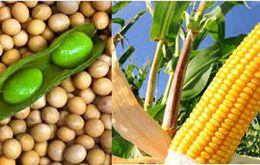
Brazil has issued a protocol instruction legally authorizing imports of genetically modified (GM) soy and corn from the United States at a time when Brazil is dealing with low stocks and record prices for these products.
-
Wednesday, October 28th 2020 - 09:00 UTC
China takes 51,4% more soybeans from Brazil than in September last year

China imported 51,4% more Brazilian soy during September, than in the same month a year ago according to a release from the Chinese Customs on 25 October. Brazil exported 7.25 million tons of oilseed to China in September compared to 4.79 million tons in the same period in 2019, according to the agency.
-
Monday, October 19th 2020 - 08:27 UTC
Brazil expects a 2020/21 record harvest with an estimated 268,7 million tons

Brazil expects its 2020-2021 grain harvest to beat the record set by the newly completed season by 4.2%, according to an initial forecast released by the state-owned National Supply Company (Conab).
-
Saturday, October 17th 2020 - 08:48 UTC
Brazil considering temporarily zero tariffs on corn and soybean imports outside Mercosur
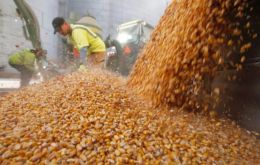
The Brazilian government is set to discuss a proposal that would temporarily eliminate tariffs on corn and soy imports from countries outside the Mercosur trade bloc, as recently happened with rice, a staple of the Brazilian diet.
-
Friday, October 2nd 2020 - 09:05 UTC
Argentina lowers export taxes on soy for three months, hoping farmers will sell their crops
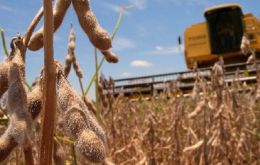
Argentina plans to temporarily cut soybean and soy meal export taxes by 3 percentage points to 30% to help stimulate export revenue as the country struggles with recession and dwindling foreign reserves, it was announced on Thursday.
-
Friday, September 11th 2020 - 08:36 UTC
It's official: Brazil's 2019/20 grains and oil harvest was a record 258 million tons
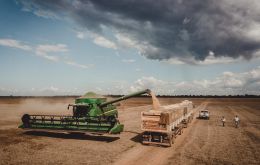
Brazil's 2019-20 grains and oilseeds harvest reached a 258mn t record as total acreage increased and yields performed well, despite some unfavorable weather conditions throughout the year.
-
Saturday, August 29th 2020 - 08:30 UTC
China makes the largest purchases of US corn and soybeans in a month
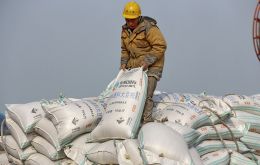
The US Department of Agriculture (USDA) reported this week that Chinese importers purchased more soybeans from the United States and recorded their largest daily buy of US corn in almost a month. The acquisitions took place as both Washington and Beijing reaffirmed their commitment to the Phase 1 of the bilateral trade agreement.
-
Wednesday, August 12th 2020 - 08:27 UTC
Brazilian commodities exports booming: corn shipments exceed soybean
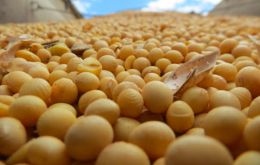
Data released on Monday by Brazil' Foreign Trade Secretariat (Secex) indicates that corn exports reached 2 million tons in the first week of August and exceeded soybean shipments in this period.
-
Saturday, August 8th 2020 - 07:20 UTC
Brazil estimates record soybean crop of 130,5 million tons in 2021; wheat imports could climb to 7,3 million tons

Brazilian soybean production is expected to increase some five million tons in the 2020/21 harvest to a record 130,5 million tons, according to Daniel Amaral, chief economist of the Brazilian Association of Vegetable Oil Industries (Abiove). Based on this crop oilseed exports could reach 80 million tons in 2021, while domestic crushing could reach a new annual record of 45 million tons.
-
Wednesday, August 5th 2020 - 07:48 UTC
Itaipú dam generates more power to help Paraguayan barges with soybeans reach the River Plate

Just over two months after completing a special outflow to increase the level of the drought-stricken Paraná River, the world largest operational hydroelectric dam, Itaipu, located on the border of Brazil with Paraguay, will increase energy production to help sailing along the huge South American water artery.
